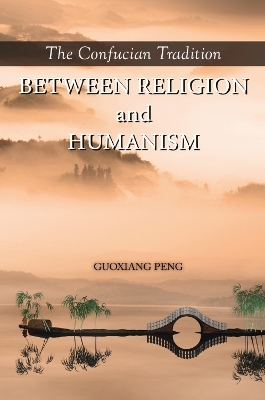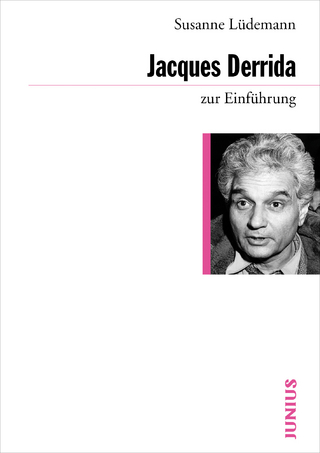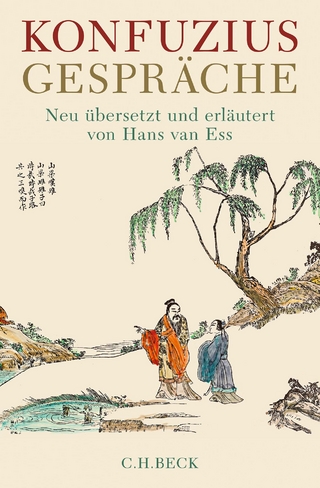
The Confucian Tradition
Bridge21 Publications, LLC (Verlag)
978-1-62643-029-7 (ISBN)
The author reviews the Confucian tradition through the two concepts, religion and humanities. Chinese scholars always adopt Zongjiao and Renwen from the ancient Chinese documents as the Chinese translation of religion and humanities. In respect of their own contexts of culture, the Chinese words and the English words share some similarities in meaning, but also have some vital differences. This book covers the major phases of the development of Confucianism, which have a wide historical span from the Pre-Qin period to the contemporary era with a focus on Confucianism in Song and Ming dynasties. Relevant ideas of modern Western disciplines such as philosophy of religion, religious studies and theology are employed by the author as references, not criteria, to illuminate key ideas in Confucian tradition and highlight the features of Confucianism as a religious or spiritual humanism. In some chapters, the author compares the eastern thinkers and theories with those western ones.
Guoxiang Peng is one of the leading scholars in Chinese philosophy, intellectual history, and religions. He has been teaching at top universities in China including Peking University, Tisnghua University, and Zhejiang University and visiting professor, visiting scholar and research fellow at various prestigious universities and institutions around the world such as Harvard University, University of Hawaii, University of Frankfurt am Main, Ruhr-University Bochum, National University of Singapore, Chinese University of Hong Kong, National Taiwan University, Wissenschaftskolleg zu Berlin, and Max Planck Institute for the Study of Religious and Ethnic Diversity. He was the 2016 Kluge Chair in Countries and Cultures of the North and the 2009 Awardee of the Friedrich Wilhelm Bessel Research Award. He has published nine books and numerous articles.
Introduction
1. An Interpretation of Humanism
2. An Explanation of Religion
3. The Confucian Tradition: Between Humanism and Religion
4. Method and Significance
Chapter 1: An Interpretation of “All Things Are Complete in Me”
1. Introduction
2. An Interpretation of “I,” “Things” and “Completeness”
3. An Interpretation of “Introspecting and Seeing Sincerity” and “Compelling Oneself to Follow the Great Way of Forgiveness”
4. Conclusion
Chapter 2: Religious Humanism Characterized by“One Body With All Things”: Focusing on the Western Inscription
1. Introduction
2. “Men Are My Kin and Things My Kind”: Self, Others and Nature
3. “Qian Is My Father and Kun My Mother”: Self, Heaven and Earth
4. Religious Humanism and Humanistic Features of Confucianism
5. Conclusion
Chapter 3: Spiritual and Bodily Exercise: Religious Implications and Significance of Zhu Xi’s Interpretation of Confucian Classics
1. Introduction
2. The Importance of Interpreting Classics
3. Interpretation of Classics as Spiritual and Bodily Exercise
4. Discussion on Spiritual and Bodily Exercise in Zhu Xi’s Interpretation
5. A Comparison between Zhu Xi’s Method of Reading and Christian Lectio Divina
6. Conclusion
Chapter 4: Wang Ji’s Doctrine of Intuitive Knowledge as a Belief, and the Religious Development of Confucianism in the Late Ming: A Perspective from Comparative Religious Studies
1. Intuitive Knowledge as the Object of Belief
2. The Features of Wang Ji’s Doctrine of Intuitive Knowledge
3. The Religious Evolution of Confucianism in the Late Ming Dynasty: Directions, Forms, and Modes
Chapter 5: Death as the Ultimate Concern: The Example of Wang Yangming’s Followers
1. Death: A Focus of Awareness among Wang Yangming’s Followers
2. Why Pay Attention to Death? How to Liberate Oneself from Death? The Response from Wang Yangming’s Followers
3. Ontollogically Different Ways of Transcending Death: Confucian Versus Buddhist
Chapter 6: Confucian Identity in Pluralistic Religious Participation: Wang Ji’s View of Confucianism, Buddhism and Taoism and His Self-Identification
1. Introduction
2. Wang Ji’s View of Confucianism, Taoism and Buddhism
3. The Self-Identification of Wang Ji
4. Conclusion
Chapter 7: “One Principle with Many Manifestations” as the Confucian Pluralistic View of Religion: An Example of the View of Three Religions in the Wang Yangming School
1. Introduction
2. Wang Yangming on the Three Religions
3. Wang Ji on the Three Religions
4. Jiao Hong on the Three Religions
5. “One Principle with Many Manifestations”: The Pluralistic View of Religion
Chapter 8: Agreement Between Virtue and Happiness: The Highest Good in Kant and Mou Zongsan
1. Kant’s Theory of das Höchste Gut
2. Mou Zongsan’s Theory of the Highest Good
3. A Comparison of Summum Bonum in Kant and Mou Zongsan
4. An Examination on Summum Bonum in Kant and Mou Zongsan
5. My Response to Summum Bonum
Chapter 9: A Comparison of the Supreme Status of Life in Confucianism and Christianity: An Examination of Kierkegaard’s Theory of Life Stages
1. Kierkegaard’s Theory of Three Stages of Life
2. The Basic Pattern Concerning Conceptions of Life in Confucianism
3. An Explanation of Commonalities
4. An Analysis of Differences
Chapter 10: Self- Cultivation as Spiritual-Bodily Exercise in Confucian Tradition and Its Therapeutic Significance with Reference to Ancient Greco-Roman Philosophical Traditions
1. Introduction
2. Another Approach to Understanding Ancient Greco-Roman Philosophy
3. The Bodily Dimension in Confucian Self-Cultivation
4. Daily Life: Self-cultivation as Spiritual and Bodily Exercise
5. The Therapeutic Significance of Confucian Self-Cultivation as Spiritual and Bodily Exercise
Chapter 11: Religious Dialogue: The Core Subject of Third-Period Confucianism
1. The Reinterpretation of the Third-Period of Confucianism
2. Whether Confucianism Is a Kind of Religious Tradition
3. The Dialogical Nature of Confucian Tradition
4. The Potential Contribution to Religious Dialogue of the Confucian Tradition
Chapter 12: Resources in Confucianism for Resolving Religious Conflicts in the Globalization Process
1. Globalization and Religious Conflict
2. Understanding the Religiousness of the Confucian Tradition
3. The Pluralistic Religious Outlook of Confucianism and its Practice
Chapter 13: The World Significance of Confucian Religiousness: Envisioning Twenty-First Century Confucianism from New Trends in Studies of Confucianism in the West
1. Trends in the Study of Confucian Religiousness in North America
2. The Influence and Significance of Contemporary New Confucianism
3. Prospects for the Worldwide Development of Religious Confucianism
Appendix: A Brief Discussion on the Target and Horizon of Confucianism and Religion
Postscript
Citations and References
Postscript to the English Version
| Erscheinungsdatum | 17.04.2023 |
|---|---|
| Verlagsort | Los Angeles |
| Sprache | englisch |
| Maße | 152 x 229 mm |
| Themenwelt | Geisteswissenschaften ► Philosophie ► Östliche Philosophie |
| Geisteswissenschaften ► Religion / Theologie ► Weitere Religionen | |
| ISBN-10 | 1-62643-029-2 / 1626430292 |
| ISBN-13 | 978-1-62643-029-7 / 9781626430297 |
| Zustand | Neuware |
| Haben Sie eine Frage zum Produkt? |
aus dem Bereich


